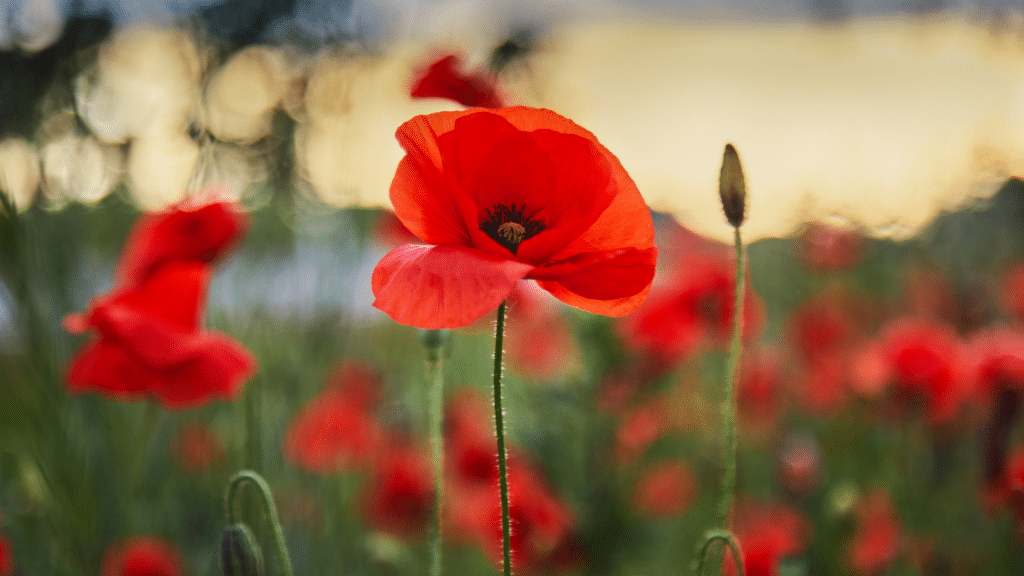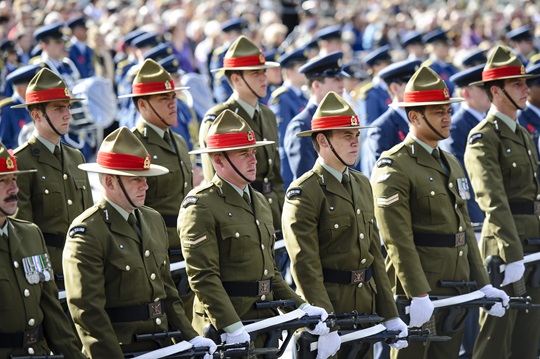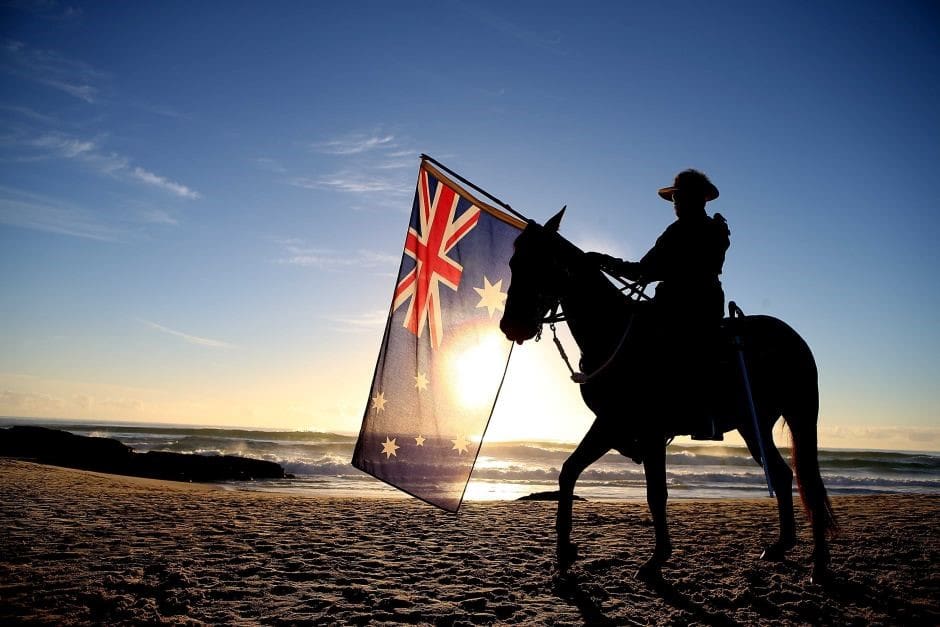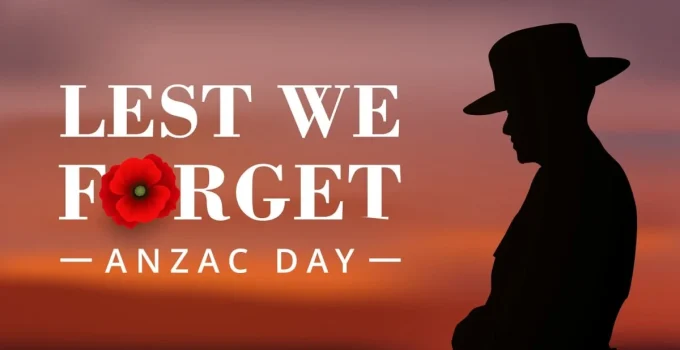ANZAC Day, observed on April 25th each year, holds profound significance for Australians and New Zealanders, serving as a solemn occasion to honor the courage, sacrifice, and resilience of the Australian and New Zealand Army Corps (ANZAC) who fought in World War I and subsequent conflicts. In this article, we delve into the history, traditions, and significance of ANZAC Day, reflecting on its enduring legacy and the values it represents.

ANZAC Day
Contents
1. Origins of ANZAC Day:
ANZAC Day commemorates the landing of Australian and New Zealand forces on the Gallipoli Peninsula in present-day Turkey on April 25, 1915. The campaign, intended to secure a strategic naval route to the Ottoman Empire, resulted in heavy casualties and a grueling stalemate. Despite the military failure, the ANZACs demonstrated remarkable courage, endurance, and mateship in the face of adversity.
2. Commemorative Traditions:
ANZAC Day is marked by a range of commemorative events and traditions, including:
- Dawn Services: Dawn services are held across Australia and New Zealand to mark the time of the ANZACs’ initial landing at Gallipoli. These solemn ceremonies typically include the playing of bugle calls, the reading of the Ode of Remembrance, and moments of silence to honor the fallen.
- Marches and Parades: ANZAC Day marches and parades provide an opportunity for veterans, their families, and the wider community to pay tribute to those who have served and sacrificed for their countries. Participants often wear medals, uniforms, and memorabilia to honor their service.
- Wreath Laying: Wreath laying ceremonies are a common feature of ANZAC Day commemorations, where dignitaries, veterans, and community members lay wreaths at war memorials and cenotaphs as a gesture of remembrance and respect.
- Commemorative Services: Commemorative services are held at war memorials, cenotaphs, and military cemeteries to honor the service and sacrifice of ANZACs and commemorate the fallen. These services often include prayers, hymns, and readings of historical accounts and personal reflections.

ANZAC Day
3. Values and Legacy:
ANZAC Day embodies core values that are integral to the Australian and New Zealand identities, including:
- Courage: The ANZACs demonstrated extraordinary courage and resilience in the face of adversity, enduring unimaginable hardships with fortitude and determination.
- Mateship: Mateship, the bond of camaraderie and solidarity forged in the trenches of Gallipoli and subsequent conflicts, remains a defining aspect of the ANZAC spirit, emphasizing loyalty, mutual support, and shared sacrifice.
- Remembrance: ANZAC Day serves as a poignant reminder of the human cost of war and the importance of honoring the memory of those who have served and sacrificed for their countries. It provides an opportunity for reflection, gratitude, and remembrance for the sacrifices of past and present servicemen and women.
4. Contemporary Relevance:
While ANZAC Day has its roots in World War I, its significance goltogel extends beyond historical commemoration to encompass broader themes of service, sacrifice, and national identity. It serves as a reminder of the ongoing commitment to peacekeeping, humanitarian aid, and international cooperation in the face of global challenges.
ANZAC Day holds a special place in the hearts of Australians and New Zealanders, serving as a time-honored tradition to commemorate the service and sacrifice of the ANZACs and to reflect on the values they embodied. As successive generations gather to pay tribute to the fallen and to honor the legacy of the ANZACs, ANZAC Day remains a testament to the enduring spirit of courage, mateship, and remembrance that defines the Australian and New Zealand identities.
Commemorating ANZAC Day: Honoring Tradition and Sacrifice
ANZAC Day, a solemn occasion observed on April 25th each year, holds profound significance for Australians and New Zealanders as a time to honor the bravery, sacrifice, and resilience of the Australian and New Zealand Army Corps (ANZAC) who served in World War I and subsequent conflicts. While ANZAC Day is marked by solemn remembrance, it is also an opportunity for communities to come together and pay tribute to the ANZACs through a range of commemorative activities. In this article, we explore various ways to commemorate ANZAC Day and honor its enduring legacy.

ANZAC Day
1. Dawn Services:
Dawn services are a central feature of ANZAC Day commemorations, reflecting the time of the ANZACs’ initial landing at Gallipoli. Held at war memorials, cenotaphs, and other significant sites across Australia and New Zealand, dawn services typically begin before sunrise with a poignant ceremony that includes the playing of bugle calls, the reading of the Ode of Remembrance, and a minute of silence to honor the fallen.
2. Marches and Parades:
ANZAC Day marches and parades provide an opportunity for veterans, their families, and the wider community to participate in commemorative processions that honor the service and sacrifice of the ANZACs. Veterans often wear their medals and uniforms with pride as they march alongside serving members of the defense forces, cadets, and community groups. Spectators line the streets to pay their respects and show their support for those who have served.
3. Wreath Laying Ceremonies:
Wreath laying ceremonies are a solemn and symbolic gesture of remembrance that take place at war memorials, cenotaphs, and other significant sites. Dignitaries, veterans, and community representatives lay wreaths of poppies and floral tributes as a mark of respect for the fallen. These ceremonies provide a poignant moment for reflection and gratitude, allowing participants to honor the memory of those who made the ultimate sacrifice for their countries.
4. Commemorative Services:
Commemorative services are held in churches, town halls, and community centers to pay tribute to the ANZACs and commemorate their service and sacrifice. These services often include prayers, hymns, readings of historical accounts, and personal reflections by veterans and community members. They provide an opportunity for people of all ages to learn about the significance of ANZAC Day and to express their gratitude for the freedoms and liberties that have been secured through the sacrifices of past generations.
5. Reflection and Remembrance:
In addition to organized ceremonies and events, ANZAC Day is a time for personal reflection and remembrance. Many people visit war memorials, cenotaphs, and military cemeteries to pay their respects to the fallen and to honor the memory of loved ones who served in the armed forces. Others participate in activities such as reading war poetry, watching documentaries, or visiting museums and exhibitions to deepen their understanding of the ANZAC legacy.
Conclusion:
ANZAC Day is a time-honored tradition that provides an opportunity for Australians and New Zealanders to come together and pay tribute to the bravery, sacrifice, and resilience of the ANZACs. Whether through dawn services, marches and parades, wreath laying ceremonies, commemorative services, or personal acts of reflection and remembrance, ANZAC Day offers a meaningful opportunity to honor the memory of those who have served and to reaffirm the values of courage, mateship, and sacrifice that define the ANZAC spirit.
Read More Article About “Cellular Jail: A Monument of Resistance and Absolute Hope“




